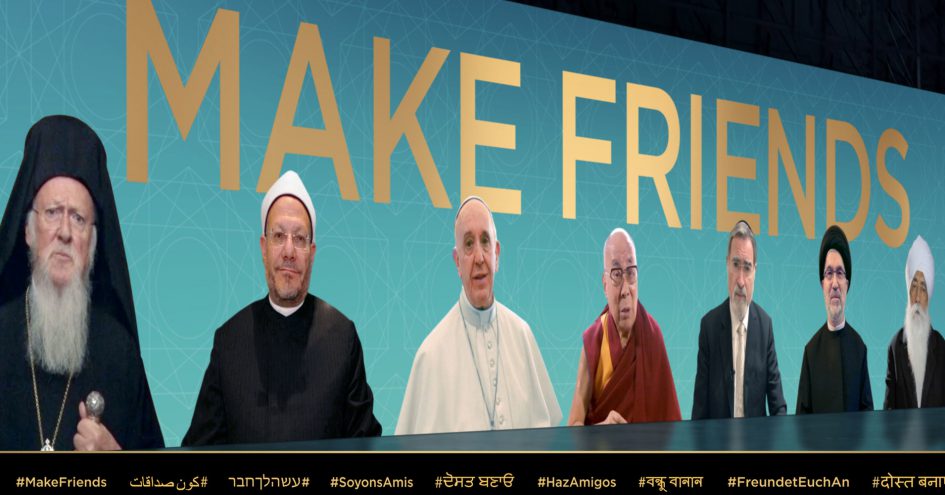(The Times of Isreal) In a three-minute video made in partnership with Twitter, the petitioners — including Pope Francis, Former UK Chief Rabbi Jonathan Sacks, the Dalai Lama and Egyptian Grand Mufti Shawki Allam — disseminated their message in 16 different languages.
The initiative, organized by the Elijah Interfaith Institute under the slogan #MakeFriends, seeks to “reduce social tension around the world by stimulating interpersonal contact between people of different faiths,” according to a statement from the institute.
The video was released on Wednesday during a London conference organized by the institute to launch the effort.
In it, Sacks says: “One of the wonderful things about spending time with people completely unlike you is that you discover how much you have in common. The same fears, hopes and concerns.”
Pope Francis and Rabbi Abraham Skorka speak of how their religious experiences have been enriched by their interfaith friendship.
The Dalai Lama says “personal contact, personal friendship” would lead people to the exchange of “a deeper level of experience.” Bartholomew I, Archbishop of Constantinople, adds: “We are called… to look into one another’s eyes in order to see more deeply and in order to recognize the beauty of God in every living human being.”
American Shia cleric Ayatollah Hassan Al-Qazwini encourages knowing one another “to discover and explore thos commonalities,” while the Archbishop of the Church of Sweden Antje Jackelén explains “This should start a process that will take prejudices away and where new insights and hope is born.”
Israeli Ashkenazi Chief Rabbi David Lau also contributed a video, in which he says people of all religions should share common values of acceptance and mutual respect.
A second, longer video from the summit issued by the institute included statements by citizens from around the world on religious prejudice.
The initiative hopes to counter the “hazardous and widespread misperception that followers of religions other than our own view us with distrust and disdain.”
Elijah Institute director Rabbi Dr. Alon Goshen-Gottstein acknowledged that religious texts were not always helpful in allaying this concern.
“We cannot deny that in the books of many religions you can find texts that are not very open, even hostile, to people of other faiths. Therefore, when the world’s most important leaders call for friendship, they are in fact affirming a particular way of practicing religion and rejecting another,” he said.
 The Libertarian Catholic
The Libertarian Catholic
















